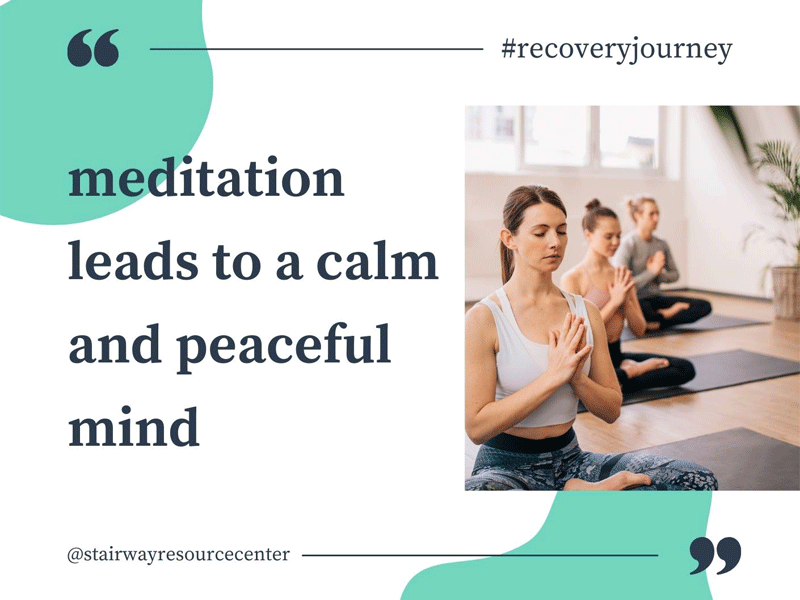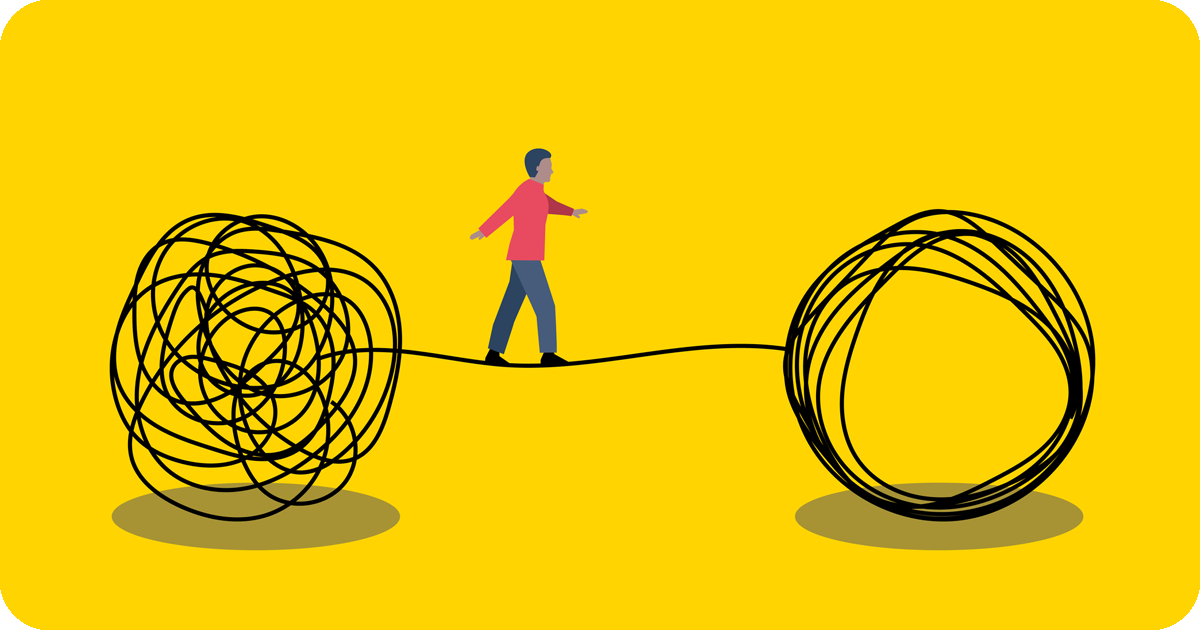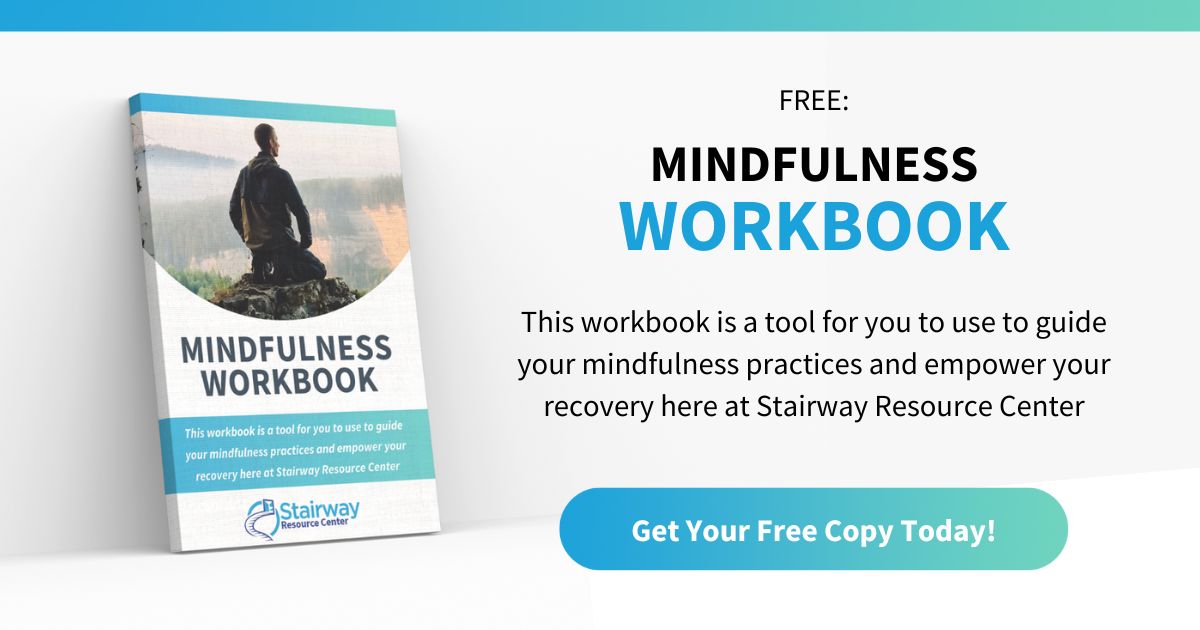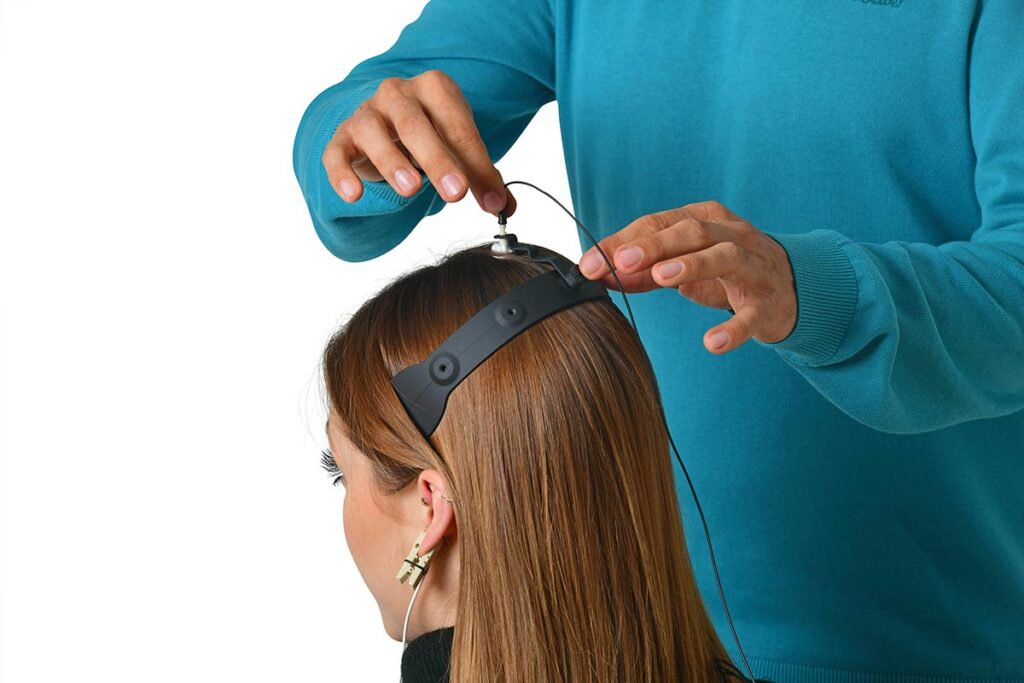The road to recovery from addiction is a long and difficult one. Unfortunately, it doesn’t end the moment you’ve detoxed, completed an addiction treatment program, or even when you’ve managed to remain sober for weeks, months, or years. Instead, truly maintaining recovery long-term means continuing to be actively engaged in the process. For most people, that means creating and following a relapse prevention plan. [1]Pettersen, H., Landheim, A., Skeie, I., Biong, S., Brodahl, M., Benson, V., & Davidson, L. (2019). Helpful Ingredients in the Treatment of Long-Term Substance Use Disorders: A Collaborative … Continue reading
To do so effectively, you’ll need to develop the ability to recognize the things that trigger you, learn how to manage the cravings when they occur, and find a supportive network of people who can help you remain sober. The strategies you implement to do each of these things can become known as your recovery or relapse prevention toolkit. Here are some major steps you can take to help you maintain your personal recovery journey.
Recognize a Potential Relapse
Relapse is an incredibly common part of the recovery process, and experiencing relapse should not be viewed as a failure that ends your chances of sustaining recovery. Still, learning to recognize the things that can cause you to relapse, as well as the signs a relapse may be imminent, can help you prevent a stumble.
While your individual triggers may be different, things that often cause relapse include [2]Levy, M. S. (2008). Listening to our clients: The prevention of relapse. Journal of Psychoactive Drugs, 40(2), 167-172. https://doi.org/10.1080/02791072.2008.10400627
- Mental health struggles
- Withdrawal symptoms
- Stressful events
- Additional trauma
- Relationship issues
- Feelings of isolation
- Low levels of self-worth
- Boredom
- Financial stressors
- Anger and anxiety related to any of the above
- Personal triggers, often involving the five senses (sights, smells, sounds)
Whether you believe you’ve experienced any of the above relapse causes, it’s important to be on the watch for signs of an oncoming relapse. Identifying the possibility that a relapse may occur allows you to recognize the need for recovery tools and either implement them or seek help before you relapse.
Common signs of relapse include:
- Consistent thoughts of what relapse might be like
- Feelings of boredom or isolation
- Glamorizing the “good old days” of substance use
- Downplaying the negative consequences that may happen if you relapse
- Avoiding aftercare, including 12 step programs, therapy, self-care, alumni programs, and more
- Returning to places and people that encouraged or supported your substance use
Keep Attending 12 Step Meetings
If you’ve identified a potential relapse ahead of time, it is crucial to keep attending 12 step meetings. As one of the most well-known recovery tools, the traditional 12 Step program has helped millions of people stay sober long-term. While 12 step programs began as a religious-based strategy, the replacement of Christian ideology with more secular terminology has meant that more people than ever before can embrace the concept of the 12 steps.
The first step of the process is acceptance, which is where an individual begins to realize that they are suffering from a substance addiction. 12 step recovery programs like ours are aimed at addressing the identified addiction head-on while confronting the different aspects of active addiction that affect the people around you. For example, one of the steps of the program involves replacing ego and self-centeredness with humility. With humility and the following process of recognizing that you are not capable of ending addiction on your own, you can seek help from others, reach out to others around you that have been affected by your addiction, and make amends.
Although seemingly counterintuitive, linking your addiction to your own actions becomes a motivating factor for sobriety. By making amends and eventually reaching out to help others, you can promote personal growth, promoting acceptance and change from within. [3]Donovan, D. M., Ingalsbe, M. H., Benbow, J., & Daley, D. C. (2013). 12-step interventions and mutual support programs for substance use disorders: an overview. Social work in public health, … Continue reading Working the 12 steps can be a wonderful way to learn to recognize the signs of a potential relapse, provides a built-in system of fellowship and community, and allows you to continue actively working on your recovery while helping others.
Group Therapy and Individual Therapy

Group therapy for addiction treatment is a system of communication based on attending meetings led by psychologists and counselors. Group therapy meetings help connect individuals dealing with substance use and provide a venue for each to talk through issues with the help of their peers and counselors. By creating a safe, non-judgmental space led by a clinical professional, group therapy can be beneficial for those seeking a sense of validation from admitting their thoughts, feelings, and experiences to others who may have similar problems.
By contrast, individual therapy relies on one on one addiction counseling focusing on one individual at a time during regular therapy sessions. Similar to counseling for mental illnesses, individualized therapy for addiction helps create a plan for sobriety that works with your unique set of circumstances. Continuing therapy after completing a treatment program can especially help those who have experienced trauma or mental illness by providing a focus on the root of the issue. In addition, a therapist can accurately address both substance use and mental health issues while providing care that helps encourage positive behaviors.
In both instances, ongoing therapy can help you continue to identify the signs of an impending relapse. Therapy can also provide you with interpersonal support and a professional’s perspective on your path through recovery. Therapy can be both an outlet for the emotions that often lead to relapse and a source of the additional tools for recovery listed below.
Attend Addiction Treatment Alumni Programs
Outpatient and inpatient addiction treatment programs are meant to provide individuals with access to facilities aimed at promoting sobriety and detoxing from substance use. Depending on the severity of your addiction, as well as the reasoning behind your substance use, utilizing outpatient or inpatient rehabilitation treatment varies from person to person. No matter your personal journey, however, outpatient rehabilitation provides daily strategies to help prevent relapse while allowing you the freedom to maintain important aspects of daily life, such as work obligations and school.
Once the outpatient program ends, whether for the day or for good, you shouldn’t feel as if you are on your own. When you are no longer in a controlled environment, free of stress from external factors like jobs or schoolwork, the resources and tools provided during the treatment program can be refocused to help with relapse prevention. If you need some help maintaining those tools, an alumni program can help continue to provide the support you need during treatment.
Alumni programs also provide you with the ability to stay connected with other individuals like you as well as the staff that helped you through your rehabilitation. In this space, you can share resources, meet new contacts who attended at a different time than you, and even participate in sober social activities. These aspects can help you remain in recovery by addressing the isolation and triggers that often lead to relapse
Explore Sponsorship Dynamics
Sponsorship dynamics, which give someone struggling with active addiction a sober sponsor, are used as a way to reinforce accountability in an individual struggling with addiction. If faced with numerous triggers, cravings, or thoughts of relapsing, your individual sponsor can be contacted in order to help talk you out of straying from your sobriety.
Acting like a clear conscience, as well as a point of sympathy for your struggles with addiction, the relational dynamic between the user and the trustee, helps provide a sense of clarity in times when the lines between what’s good and what’s wrong are blurred by your addiction.
Taking a position between that of a therapist and that of a concerned friend, your sponsor is there as a guiding force towards sobriety, reminding you and proving to you that recovery is possible. Those who take on sponsorship positions are sober individuals who found their sorority through experiencing the hardships that come from being in active addiction themselves, and when it comes to helping in a time of crisis, their understanding of these troubling times makes it easier to open up about how your feelings are leading you to fall out of your temporary sobriety. [4] APA (2021) Psychotherapy: Understanding group therapy. American Psychological Association. Retrieved May 10, 2022, from https://www.apa.org/topics/psychotherapy/group-therapy
Study Meditation and Mindfulness Techniques

For some facing active addiction, turning to mindfulness techniques as a form of treatment can be beneficial for entering a state of mind capable of working through recovery. The core tenets of mindfulness rely on a connection to the self, as well as mental discipline as a form of control over addiction related urges and needs. Typically used as a way to cope with anxiety, depression, or other mental illnesses that come with uncontrollable thoughts and feelings, mindfulness exercises can create a very beneficial treatment plan for those facing addiction urges.
Meditation works in the same way that mindfulness does, creating a sense of mental discipline that can be used when facing any temptation or cravings from your addiction. Similar to an appetite suppressant, medication and mindfulness work hand in hand to provide a safeguard from relapsing while internally crafting a set of tools to help with addiction based on self-reliance. Meditation, much like exercise, can also become a conduit for craving control by proving to be a distraction, helping engage the mind and body in an activity that is not related to substance use.[5]Garland, E. L., & Howard, M. O. (2018). Mindfulness-based treatment of addiction: current state of the field and envisioning the next wave of research. Addiction Science & Clinical Practice, … Continue reading
Simple mindfulness and focus techniques can help you avoid relapse in the moment and maintain recovery long-term.
These are some of the most effective.
Try Deep Breathing
Breathing techniques are an age-old mindfulness technique useful in any stressful situation, not just relapse prevention. Breathing deeply helps invite calm and can also help shift your focus away from a trigger or craving. If you haven’t already learned deep breathing techniques, start simple: just breathe as deeply as you can through the nose for 4-5 seconds. Then, hold your breath for 4-5 seconds and release gradually on the same count. Repeat this technique until you find yourself beginning to relax and refocus.
HALT
When you experience the desire to have a drink or use your drug of choice, the HALT acronym can help you assess which areas of your life you may need to address to curb the temptation. The four letters in HALT represent potential issues that may be making you feel as if you need to use: hungry, angry, lonely, and tired. By taking time to consider whether one of these four basic needs may need attention or action, you can practice self-care and improve your health instead of relapsing.
Extend the Scenario
All too often, people in recovery who are feeling the urge to relapse tend to minimize the severity of the situation they are experiencing. For example, if you tell yourself that just one drink will curb the anxiety you are feeling, you are minimizing the consequences you’ll face when that one drink inevitably becomes several. Instead, when you’re feeling the urge to relapse, extend the scenario past that first drink. What will happen today if you have one drink? What will happen tomorrow once you’ve had several hits? Where will you be in the future once you’re back in active addiction and experiencing withdrawals? Stopping and considering how the scenario will play out if you experience the consequences of your actions can help you realize how much better the alternative–staying sober–truly is.
Connect With Your Surroundings (5,4,3,2,1)
Grounding yourself using your surroundings can be a great way to refocus your attention and energy in the face of triggers or times of increased anxiety. Instead of focusing on the craving or the stressful trigger, focus on the positive and even mundane things around you. You can achieve this by surveying your environment and using your five senses. Find five positive things to see, four things to reach out and touch, three positive elements you can hear, two you are able to smell, and one to taste. This attention to the positives in the here and now can help you remove your focus on the stressful event or craving.
Professional Recovery Help Is Available

Taking the first steps toward treating your addiction is hard, but with the right guiding framework, recovery is possible. Relying on the relapse prevention tools available to you after you’ve begun recovery is key to fighting addiction. No matter the stage of recovery you’re experiencing, support from outside sources is often necessary and does not detract from your progress. Often, support is the key ingredient missing for those seeking long-term recovery.

Adult Psychiatrist
Kristen Nelson, MD is double board certified in General Psychiatry and Addiction Psychiatry. She completed her psychiatry residency at Eastern Virginia Medical School and pursued an addiction psychiatry fellowship with UCLA. She has extensive training at Veteran Administration hospitals. Areas of expertise are post-traumatic stress disorder, mood disorders, anxiety disorders, substance use disorders, and psychopharmacology.
Sources:
| ↑1 | Pettersen, H., Landheim, A., Skeie, I., Biong, S., Brodahl, M., Benson, V., & Davidson, L. (2019). Helpful Ingredients in the Treatment of Long-Term Substance Use Disorders: A Collaborative Narrative Study. Substance Abuse: Research and Treatment. https://doi.org/10.1177/1178221819844996 |
|---|---|
| ↑2 | Levy, M. S. (2008). Listening to our clients: The prevention of relapse. Journal of Psychoactive Drugs, 40(2), 167-172. https://doi.org/10.1080/02791072.2008.10400627 |
| ↑3 | Donovan, D. M., Ingalsbe, M. H., Benbow, J., & Daley, D. C. (2013). 12-step interventions and mutual support programs for substance use disorders: an overview. Social work in public health, 28(3-4), 313–332. https://doi.org/10.1080/19371918.2013.774663 |
| ↑4 | APA (2021) Psychotherapy: Understanding group therapy. American Psychological Association. Retrieved May 10, 2022, from https://www.apa.org/topics/psychotherapy/group-therapy |
| ↑5 | Garland, E. L., & Howard, M. O. (2018). Mindfulness-based treatment of addiction: current state of the field and envisioning the next wave of research. Addiction Science & Clinical Practice, 13(1), 1-14. https://doi.org/10.1186/s13722-018-0115-3 |






















